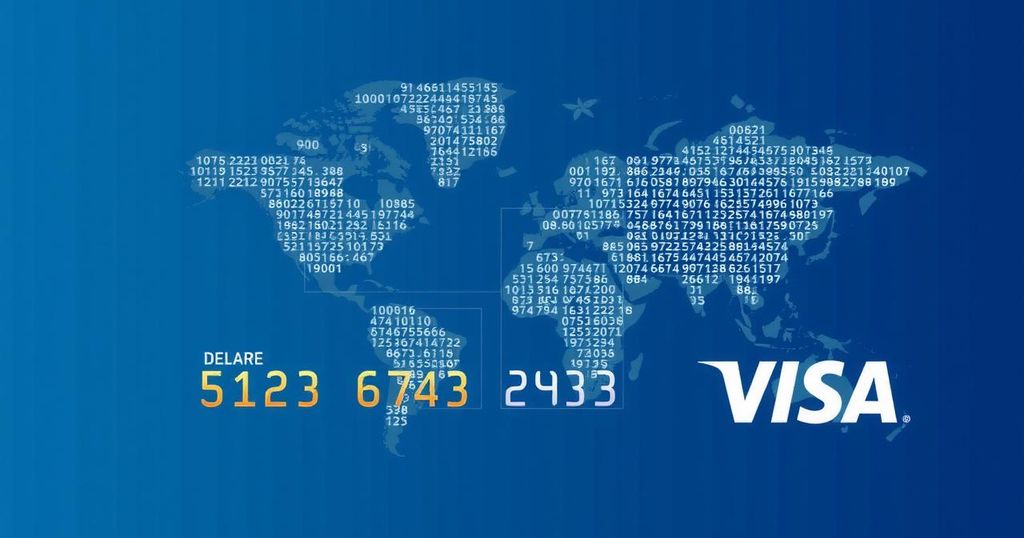The U.S. Justice Department has filed an antitrust lawsuit against Visa, accusing the company of monopolistic practices that restrict competition in the debit card market. The lawsuit claims Visa has maintained its dominance through exclusive agreements and the imposition of excessive fees on merchants, which ultimately affect consumer pricing, particularly harming lower-income individuals. This action is part of the administration’s broader effort to enforce antitrust laws against significant corporate players.
On Tuesday, the United States Department of Justice initiated an antitrust lawsuit against Visa, alleging that the prominent financial corporation has engaged in monopolistic practices that hinder competition in the debit card market. The complaint asserts that Visa has established de facto exclusive agreements with various merchants and financial institutions for over a decade, which effectively directs a substantial volume of transactions through its payment network. According to the Justice Department, Visa has maintained its monopolistic position by imposing punitive fees on merchants who also utilize alternative payment networks for debit transactions. This lawsuit is a component of a broader investigation that has been ongoing for several years and aligns with the Biden administration’s aggressive stance on antitrust enforcement, targeting various corporate intermediaries that inflate costs substantially. Visa, which processed $3.8 trillion in U.S. debit transactions over the past year, has been described as a significant intermediary within the financial system, amassing over $7 billion in processing fees annually. The Justice Department claims that these fees, largely opaque to the everyday consumer, are ultimately passed down to consumers, disproportionately affecting younger and low-income individuals. Attorney General Merrick B. Garland highlighted the broader implications of Visa’s conduct, stating that its unlawful actions can influence not only one price point but substantially impact the pricing of numerous goods and services across the economy.
The antitrust lawsuit against Visa is part of a concerted effort by the United States government to curtail monopolistic power and foster a competitive marketplace. This initiative falls within the administration’s broader economic policy, which emphasizes rigorous antitrust enforcement aimed at major corporations. The Justice Department’s scrutiny of Visa specifically targets its longstanding business practices that allegedly obstruct competition and inflate merchant fees, which are often absorbed by consumers. This lawsuit reflects a growing trend of regulatory actions against corporations deemed to wield excessive market power, thereby increasing costs for American consumers, especially those from economically disadvantaged backgrounds.
In conclusion, the Justice Department’s lawsuit against Visa underscores the ongoing federal efforts to challenge monopolistic practices in the debit card industry. By alleging that Visa has engaged in anticompetitive behavior through exclusive agreements and punitive fee structures, the government aims to promote fair competition and reduce costs for consumers, particularly vulnerable populations who bear the brunt of increased prices. As the case unfolds, it may set significant precedents for market practices in the financial sector.
Original Source: www.nytimes.com

Leave a Reply